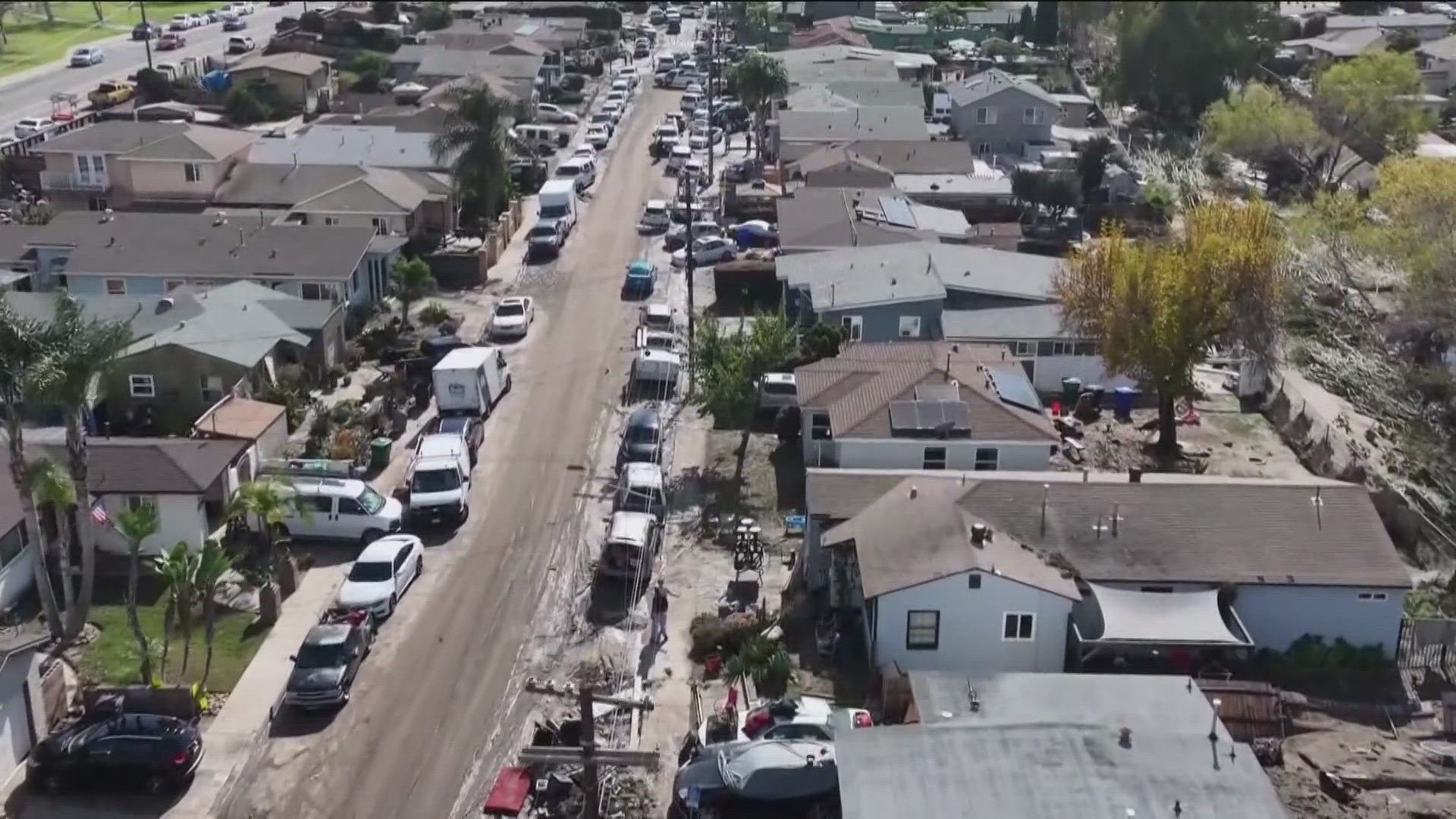SAN DIEGO — San Diego County says they're ready to transition January flood victims out of their emergency temporary hotel program to a more long-term solution.
However, some flood victims we talked to say their homes aren’t ready to move back into and their applications for assistance for long-term recovery are getting denied
CBS 8 has been Working For You to try and clear up some of the confusion around what's happening next for flood victims as they continue to rebuild nearly 5 months after the storm.
San Diego County officials tell us they’ve provided $4.2 million in grant funds to the San Diego Housing Commission to support City of San Diego Emergency Temporary Lodging Program participants with rental assistance, security deposits, utility payments, landlord incentives, unit rehabilitation or direct case management costs.
The San Diego Housing Commission will determine how best to meet the needs of their residents including how much support each individual will receive.
The County finalized a similar agreement with National City. The National City Housing Authority received more than $360,000 in County grant funds to help their residents successfully transition out of the County Emergency Temporary Lodging Program.
Armon Harvey with The Harvey Family Foundation has been on the ground since day one with several other community based organizations helping January's flash flood victims rebuild.
"It's a race against the clock,” Harvey exclaimed. “The families are leaving June 21. And we're hoping to get as many families back into their home as possible."
Now that San Diego County is looking to move January storm victims from the county's emergency temporary lodging program to longer-term housing solutions by June 21, Harvey says families who lost everything are dealing with even more confusion and need stability.
"They don't want to be somewhere else. They don't want to be displaced. They don't want to be shipped to Mission Valley, El Cajon or Vista. They want to be right where they were their families are in the home they grew up in," Harvey explained.
Jessica Caliex lost her home in the January 22 flood. She spoke at the City of San Diego’s budget committee hearing advocating for storm victims who still need help.
"For two weeks we stayed with friends who helped us. Then for two weeks the YMCA provided us housing which was phenomenal. Then it transitioned to county which was really hectic. Lots of moving hotels. Moving hotels last minute. Now here we are, I've exhausted that FEMA rental assistance. Most of us aren't qualifying for the extended 18-month assistance because it's income based. They have a formula for affordability based off your previous employer and rent and most people are not qualifying," Caliex shared.
- Families from the City of San Diego who were eligible for and participating in the County’s Emergency Temporary Lodging Program as of May 23 would be eligible for assistance from the San Diego Housing Commission’s (SDHC) Flood Recovery Program for Displaced Residents. Those families can apply online for the program at floodassistance.sdhc.org.
- SDHC also is contracting with Logan Heights Community Development Corporation to assist families with applications for the program by appointment either in person or by phone. Eligible families can contact Logan Heights Community Development Corporation at (619) 858-0563 or 3040 Imperial Avenue, San Diego, CA 92104.
WATCH RELATED: Nearly two dozen families moved back into Delta Apartments after January flood

